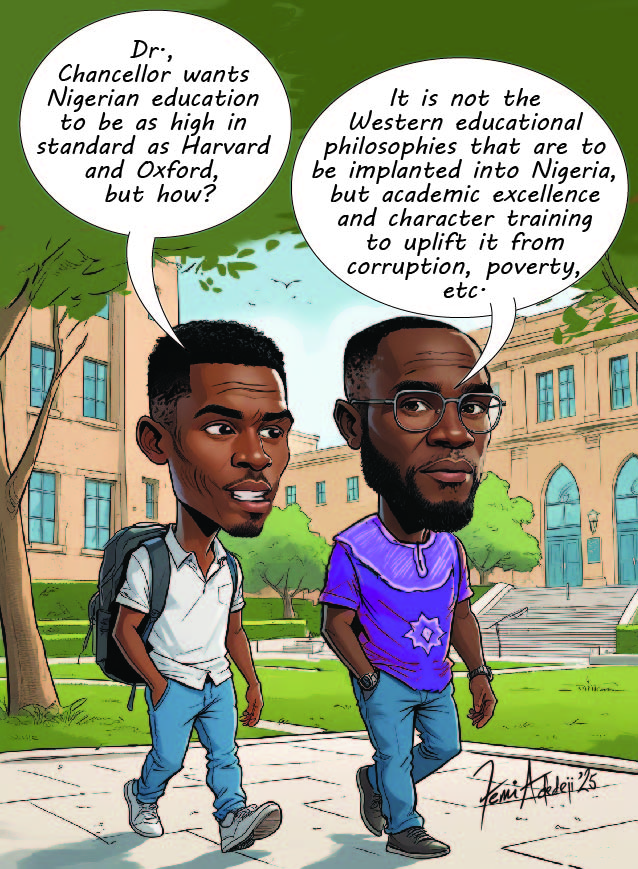We can trace some of the Nigerian youth’s disorderliness, banditry, delinquency, and multifarious crimes to family disorganization. The absence of knowing the cultural basis and its application in training alludes to family disorganization.
Looking at the preliterate African age, we learn that the community and the closely knit family worked cooperatively to ensure the child turned out the best. The character is such that joint effort made possible. To some extent, this is no longer the same today - a situation worsened under the influence of Eurocentrism. DR. Chancellor Williams says that the African proverbs were so rich in poetry and philosophy that they are so crucial in character formation, which, of course, is the main objective of education – the molding of a person’s character, in addition to understanding of the political and social sciences of traditional African family system in terms of proper conduct, obedience, politeness, respectful differences to one’s seniors, and knowledge of the social organizing of the tribes from family to the state along with rights and responsibilities in its complex structure, including the aspect of extended family traditions. He adds that the cultural basis for reconstructing Nigeria and the rest of Africa may be even clearer if we study the pre-colonial African preliterate educational system for some of the definite education systems. The preliterate African family saw that religious and character education meant the same – the character one exhibited on Monday, Tuesday, and Wednesday was the same as on Thursday, Friday, Saturday, and Sunday. Our ancestors' cultural practices and great deeds, which some Nigerians have taken for granted, became his greatest discoveries for the years he spent in Africa.
Our campaign, therefore, is to use some of the elements of ‘’the Pre-literate African education’’ in reconstruction to solve many of the modern-day problems. YFIBIGO knows that the youths could improve a lot, given the circumstance that an Igbo, Hausa, or Yoruba could retrace his footsteps to the highly civilized scheme of political and social organization that the ancestors had in the past and try to retain some cultural values which underlie all primitive behavior, and which appear to be stubbornly persisting remains from a higher life. We want our youths to improve with the sense of heritage and knowledge of family history developed in the family, extended family, and kinship group as they become close to each other and depend on one another. We want this to form part of the educational requirement and be introduced as ‘’essay writing and part of history class’’ for primary and secondary education to improve knowledge of self, which is the larger education. We seek this as the cultural basis for reconstructing our system.


